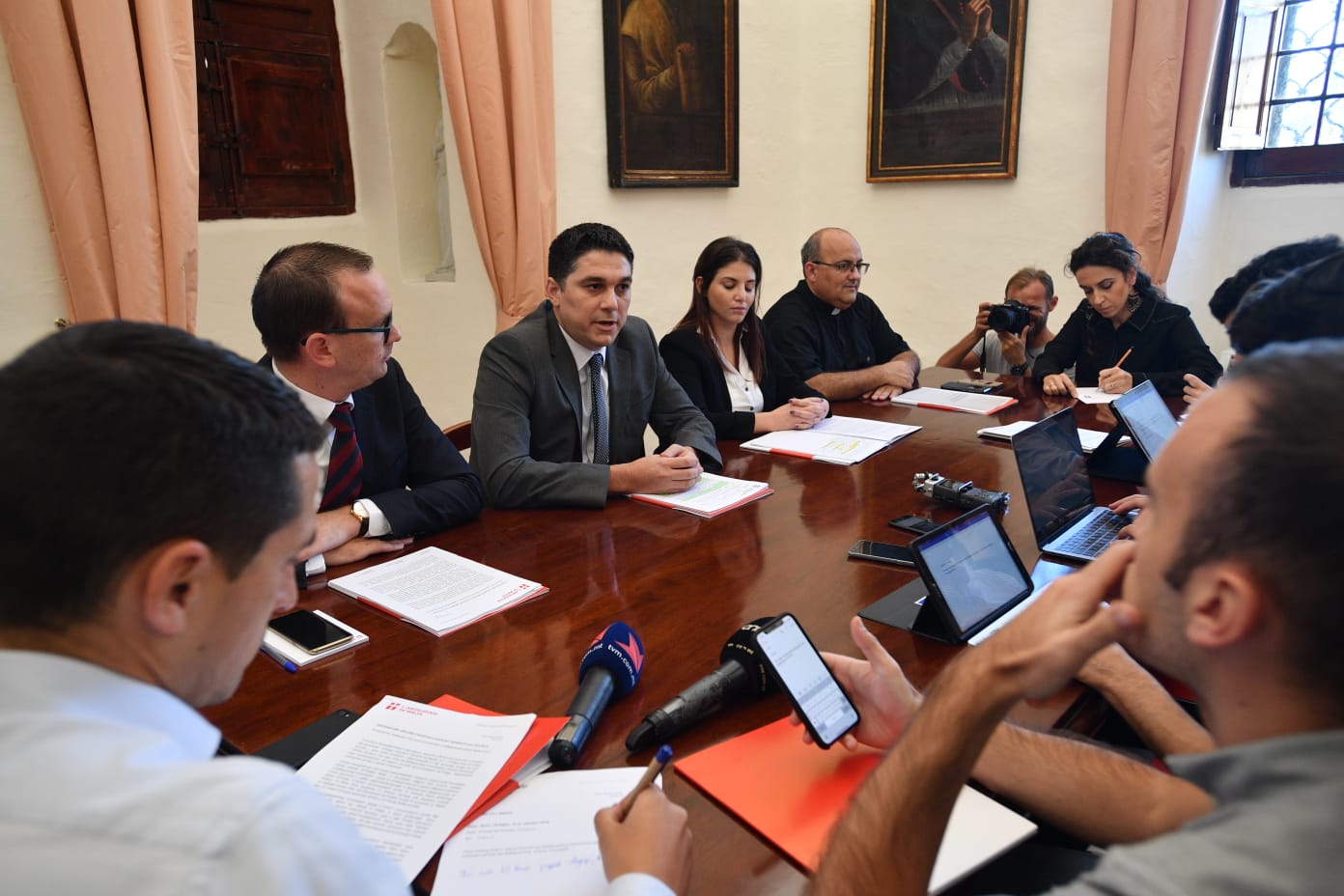-
-
The decision by the Maltese Bishops to prohibit a priest from exercising his priestly ministry, despite the decision by the Court of Appeal, shows that the Church abides by specific and more stringent criteria resulting from the responsibilities laid down on priests by canon law. The Head of the Safeguarding Commission, Andrew Azzopardi, said this during the presentation of the annual report of the Church’s Commission which is responsible for the protection of minors and vulnerable adults.
Andrew Azzopardi explained that this same sense of responsibility and the need to take more immediate action led the Maltese Bishops and the religious orders to setup the Safeguarding Commission in 2015. The Commission is formed by a group of professionals who work autonomously and give recommendations concerning allegations of abuse in the Church. The members of the Commission are: Dr Roberta Attard (a clinical psychologist), Dr Kevin Borg (a paediatrician), Fr Antoine Farrugia sdb (a social worker), Dr Nathalie Kenely (Head of the Department of Social Policy and Social Work at the University of Malta), Rev. Dr Joseph Farrugia (a clinical psychologist) and Dr Nicole Briffa (a lawyer).
The Head of the Safeguarding Commission explained that in 2017 the Commission received three allegations of abuse of minors which were substantiated. These allegations involved a diocesan priest, a religious priest and a lay person. All three cases were referred to the Police to investigate. Apart from this, necessary action was taken, without prejudice, by imposing restrictions on the pastoral activity carried out by those involved. This was done following the recommendation of the Commission as a precautionary measure.
By the end of 2017 the Safeguarding Commission concluded risk assessments on a number of complaints which were brought to the attention of the Commission. Out of these complaints, 10 were unsubstantiated, 3 were unfounded and 3 were not related to abuse but were still referred to other entities for appropriate action. At present, the commission is carrying out risk assessments on 12 other complaints.
With regards to complaints concerning vulnerable adults, the commission concluded that out of those received in 2017, 3 were unsubstantiated, 3 were unfounded, and 6 were referred to other entities as they were not related to sexual, physical or emotional abuse, exploitation or bullying. At present, the commission is carrying out risk assessments on 3 other complaints.
Andrew Azzopardi said that the work carried out by the Safeguarding Commission over the years is contributing to an increase in awareness on the prevention of abuse. He explained that the commission gave specialised training to around 2,000 Church personnel who work with children, adolescents and vulnerable adults in Church entities. These include: teachers, care workers, catechists, priests, members of religious orders, seminarians and volunteers.
By the end of the year the commission concluded a pilot project with six Church entities to evaluate the measures in place and to consider new practices in the field of the prevention of abuse. As required by Law, the commission also filed a number of court applications for a total of 2,155 people who work with minors in the Church and who all received clearance. This was done to ascertain that the protection of minors and vulnerable adults is truly at the centre of the work carried out by the Church for the benefit of the community at large.
Andrew Azzopardi expressed his gratitude for the collaboration that exists between the Safeguarding Commission and the Police to fight abuse and to ensure that victims receive justice. He encouraged all those who know about any abuse in the Church to report directly to the Police and to contact the Safeguarding Commission on [email protected].
-
4
-

-






